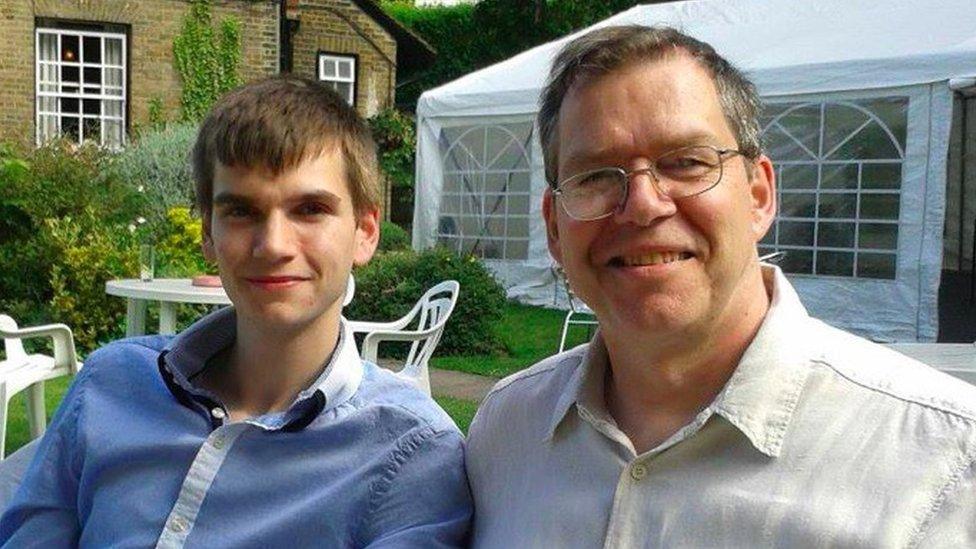Stephen Port: Coroner identifies 'basic investigative failings' in Met probe
- Published
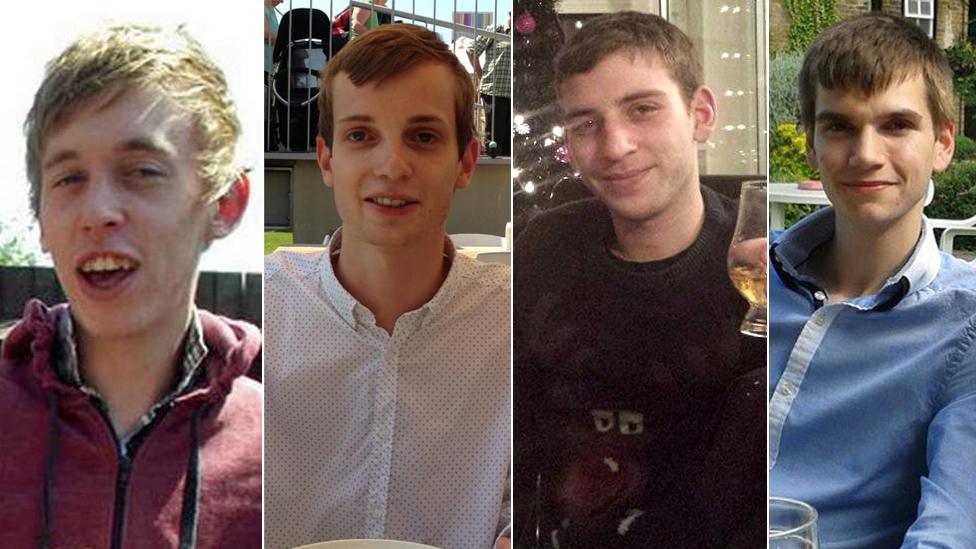
Stephen Port's victims (L-R): Anthony Walgate, Gabriel Kovari, Jack Taylor and Daniel Whitworth
Families of the four victims of serial killer Stephen Port have welcomed a coroner's report on the bungled investigations into their deaths.
Sarah Munro QC's report on Tuesday, came after inquests into the deaths of Anthony Walgate, Gabriel Kovari, Daniel Whitworth and Jack Taylor.
The men all died at the hands of Port, who drugged them with overdoses of GHB.
He dumped their bodies near his flat in Barking, east London, between June 2014 and September 2015.
The sisters of Port's final victim blame police for his death
Port, 46, is serving a whole-life term for murdering Anthony Walgate, Gabriel Kovari, Daniel Whitworth and Jack Taylor in Barking over 16 months.
Their deaths were not regarded as suspicious until weeks after the fourth murder, allowing Port to drug and sexually assault more than a dozen other men.
On Tuesday in her 'Prevention of Future Deaths' report, Ms Munro said she had been "extremely concerned and disappointed" to hear evidence of the blunders set out by jurors after the inquests in December, which found "fundamental failures" by the police likely contributed to three of the men's deaths.
Ms Munro said this showed "a lack of professional curiosity", as well as leadership failures at inspector and sergeant level.
She added that perhaps the most striking of these was "the large number of very serious and very basic investigative failings".
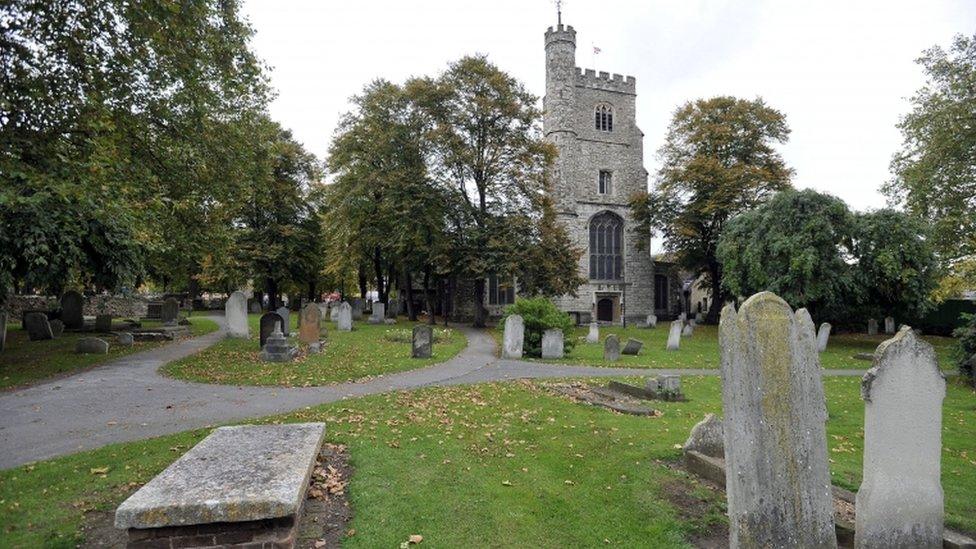
The bodies of Gabriel Kovari and Daniel Whitworth were found in the graveyard of St Margaret's Church
The case was branded "one of the most widespread institutional failings in modern history" by the men's families and their solicitor, Neil Hudgell, said it was clear "there remain very many areas" for improvement, both within the Met and nationally.
Families of the four men believed that homophobia played a part in the failings and a petition to sack "negligent, homophobic police officers", external, set up by the sisters of one victim, Jack Taylor, has more than 25,000 signatures.
In her report, Ms Munro said she agreed with a report by the Independent Office for Police Conduct (IOPC), which suggested "assumptions... about the lifestyle of young gay men" in policing was present at the time "and may still be".
Although nine officers were found to have performance failings by the IOPC, none were disciplined or lost their jobs, and five have since been promoted.
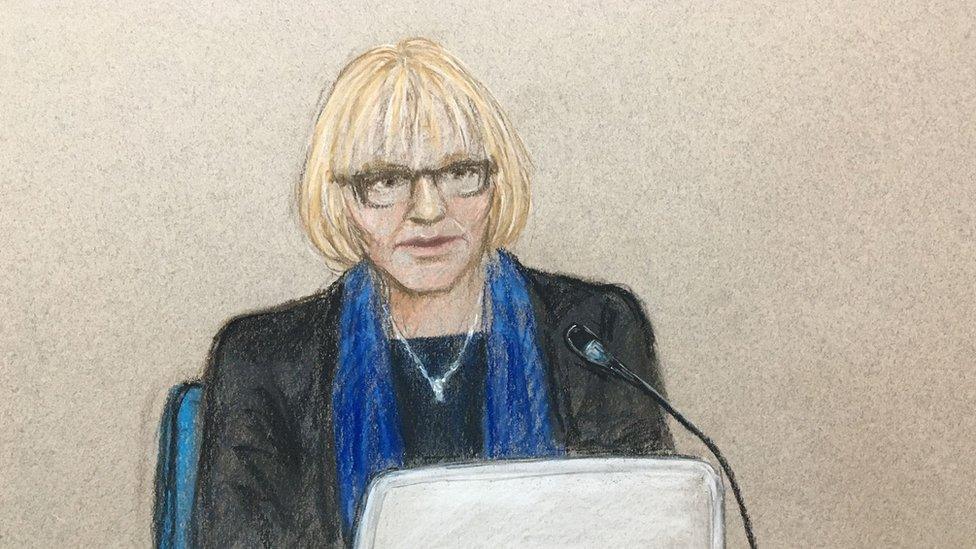
Coroner Sarah Munro QC said there had been some "very serious and very basic investigative failings"
Ms Munro highlighted how a wall of silence by officers being investigated by the IOPC had cracked at the inquests, where some officers were compelled to give evidence in person, revealing more blunders.
She also said current Met guidelines that allow deaths to be classified as "unexplained" may "distract" from the "correct and necessary approach" to treat deaths as suspicious until the cause is known.

Follow BBC London on Facebook, external, Twitter , externaland Instagram, external. Send your story ideas to hellobbclondon@bbc.co.uk, external
- Published10 December 2021
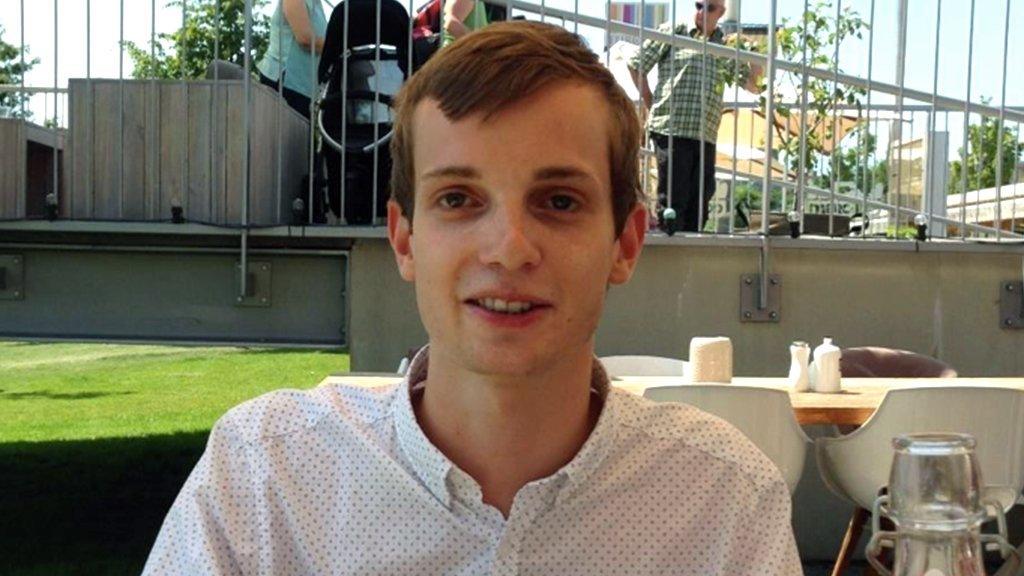
- Published17 November 2021
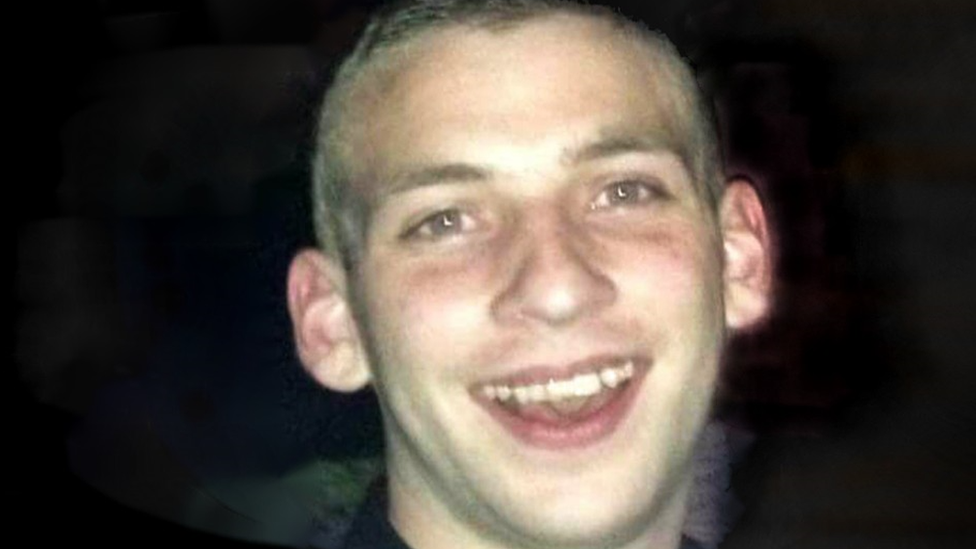
- Published5 October 2021
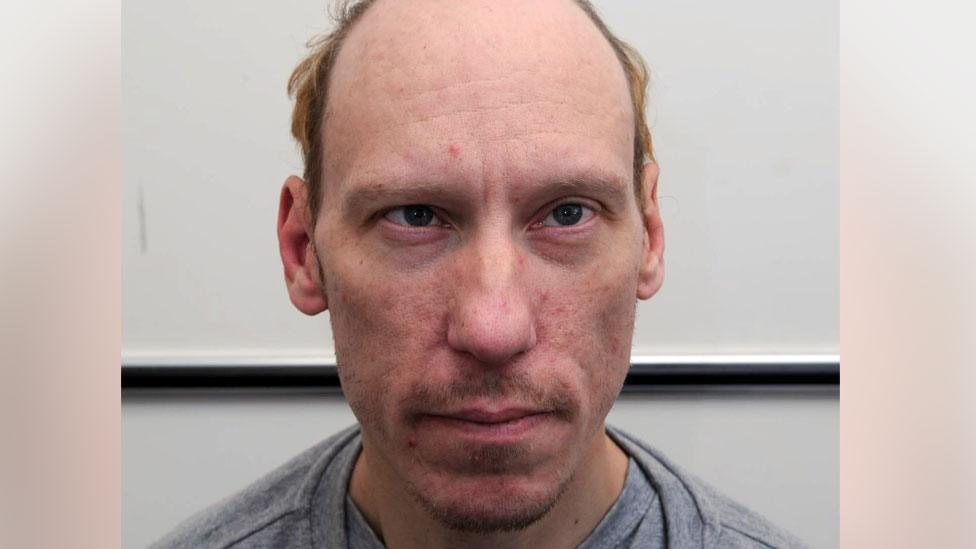
- Published5 October 2021

- Published5 October 2021
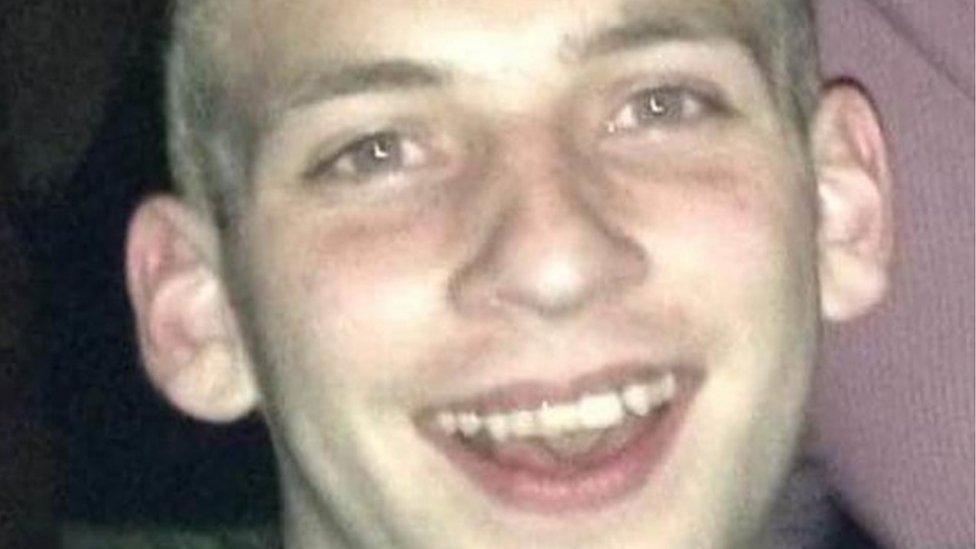
- Published6 October 2021

- Published28 October 2021

- Published3 November 2021
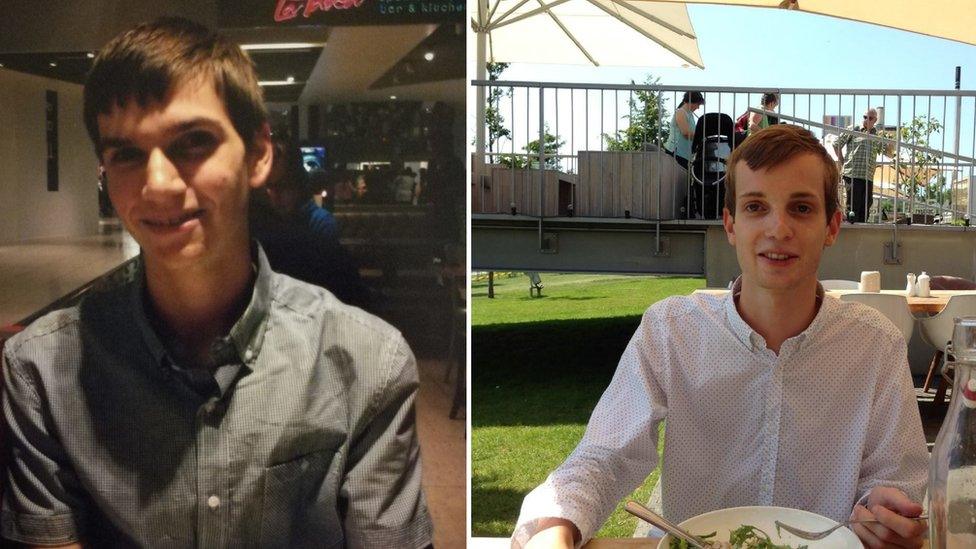
- Published4 November 2021
